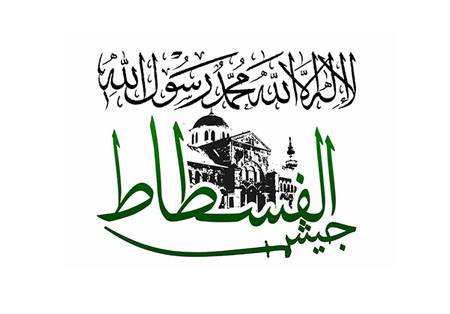
Click the following link for a safe PDF copy: Jaysh al-Fusṭāṭ — “About the Setting Aside of the Covenants and Conventions By Jaysh al-Islām in Today’s Events”
________________
To inquire about a translation for this statement for a fee email: [email protected]
Category: Jaysh al-Islām
Jihadology Podcast: The Syrian Jihad: A History
Charles Lister comes back on the show for an in-depth discussion on jihadism in Syria. Some of the topics covered include:
- Islamism and jihadism in Syria prior to the 2011 uprising
- The entrance and evolution of Jabhat al-Nusra, Ahrar al-Sham, and Jaysh al-Islam into what became the Syrian war
- Why foreign fighters came into the Syrian conflict
- Why the Islamic State of Iraq decided to enter the war in April 2013 and what it was up to prior to the fitness in January 2014
- What the growth of ISIS and later IS meant for the other extreme factions – JN, Ahrar, and JI
Links:
- The Syrian Jihad | Hurst Publishers
- Brookings Doha Center | Brookings Institution
- Charles Lister (@Charles_Lister) | Twitter
This episode also features an updated #SocialMedia segment, covering postings from November 11-20.
Thanks to Haakon Jahr and Raihan Kadir for supporting the podcast. You can support the show, and get some cool rewards, by checking out the show’s Patreon page.
The podcast is produced by Karl Morand. If you have feedback you can email [email protected], or find us on Twitter: @JihadPod.
You can subscribe to the show in iTunes, Stitcher, or with our RSS feed.
Download this episode (45MB mp3)
New statement from Jaysh al-Islām: "Condolences on the Death of the Leader of the Faithful the Mujāhid Mullā Muḥmmad 'Umar"
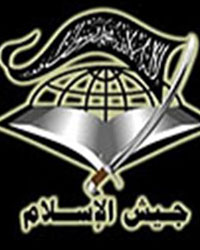
Click the following link for a safe PDF copy: Jaysh al-Islām — “Condolences on the Death of the Leader of the Faithful the Mujāhid Mullā Muḥmmad ‘Umar”
__________________
To inquire about a translation for this statement for a fee email: [email protected]
New statement from Jabhat al-Nuṣrah: "Explanation of Recents Events That Took Place Between Jabhat al-Nuṣrah and Jaysh al-Islām in Eastern Ghūṭah"
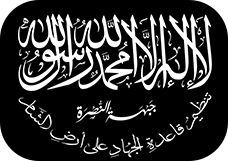
Click the following link for a safe PDF copy: Jabhat al-Nuṣrah — “Explanation of Recents Events That Took Place Between Jabhat al-Nuṣrah and Jaysh al-Islām in Eastern Ghūṭah”
_______________
To inquire about a translation for this statement for a fee email: [email protected]
New video message from Jaysh al-Islām: "Say, 'Rather, [We Follow] the Religion of Abraham'"
The title of this video message is in reference to Qur’anic verse 2:135. Here it is in full: “They say, ‘Be Jews or Christians [so] you will be guided.’ Say, ‘Rather, [we follow] the religion of Abraham, inclining toward truth, and he was not of the polytheists.'”
—
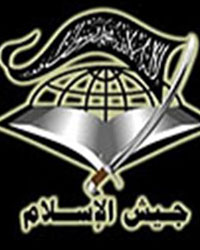
______________
To inquire about a translation for this video message for a fee email: [email protected]
GUEST POST: Ahrar al-Sham Spiritual Leader: The Idol of Democracy Has Shattered
NOTE: As with all guest posts, the opinions expressed below are those of the guest author and they do not necessarily represent the views of this blogs administrator and does not at all represent his employer at the Washington Institute for Near East Policy.
Jihadology.net aims to not only provide primary sources for researchers and occasional analysis of them, but also to allow other young and upcoming students as well as established academics or policy wonks to contribute original analysis on issues related to jihadism. If you would like to contribute a piece, please email your idea/post to azelin [at] jihadology [dot] net.
Click here to see an archive of all guest posts.
—
Ahrar al-Sham Spiritual Leader: The Idol of Democracy Has Shattered
By Sam Heller
On 26 May, Ahrar al-Sham’s chief shari’ah officer “Abu Muhammad al-Sadeq” issued a treatise on Twitter titled “And the Idol Has Shattered” – the “idol,” in this case, being democracy. Drawing on Algeria and Egypt’s aborted democratic experiments, Abu Muhammad argued that democracy is, in real practice, a trap for would-be Islamist participants.
Abu Muhammad was, on one level, stepping into the middle of an intra-Islamist and -jihadist controversy that has been roiling over the past several weeks. In that sense, his tweets (translated below) are another example of Ahrar threading the needle, reconciling the forces of the Syrian revolution with global jihadism in the interest of rebel unity and victory. And on another level, Abu Muhammad’s argument provides further insight into what might be an acceptable post-Assad Syrian political order for Ahrar al-Sham – which by now is arguably the strongest, most relevant fighting force within the Syrian rebellion.
The intramural Islamist/jihadist blowup into which Abu Muhammad inserted himself dates back to McClatchy’s 20 May interview with Jeish al-Islam commander Zahran Alloush. Alloush – one of Syria’s most powerful Islamist rebel chieftains – seemed to moderate his earlier rejection of democracy, saying, “After the fall of the regime, we’ll leave the Syrian people to choose the sort of state it wants.” (To their credit, McClatchy’s Roy Gutman and Mousab Alhamadee challenged Alloush on his reversal.)
Salafi-jihadist ideologue “Abu Muhammad al-Maqdisi” then weighed in on Alloush’s comments, seemingly implying that Alloush was guilty of apostasy (translation). Al-Maqdisi employed a Quranic verse (12:103) originally intended for non-Muslims and, more bluntly, said that “surrendering the fruits of jihad on the path of God to the whim of the people” amounted to “a betrayal of God, His Prophet, and the martyrs’ sacrifices.”
This sort of back-and-forth is not purely abstract. Insofar as Alloush is among Syria’s top rebels and al-Maqdisi is the prime ideological reference for Jabhat al-Nusrah, this is the sort of argument that gets people shot. (Alloush is himself a Salafist, but he reportedly hews more to the less radical ‘Ilmiyyah school of Salafism and is seen with distrust by many Salafi-jihadists.)
Abu Muhammad al-Sadeq seems to have consciously staked out a middle ground in this debate. He devotes much of his treatise to mini-histories of the Algerian and Egyptian coups, which he uses to argue that democracy, merits aside, is basically a trick. If Islamists win democratically, in his telling, the West will simply conspire with the “Deep State” to subvert those elections and crush the Islamists. He is sympathetic to the Brotherhood, who “bear an Islamic project,” but he makes it clear that the path forward is armed revolution and jihad. Currying favor with the West, as the Brotherhood did, is a waste of time. Abu Muhammad’s closing line seems like a reminder to Alloush that it’s pointless to pose as a “good Islamist” to the West. The West ultimately won’t make those intra-Islamist distinctions – Islamists, he says, will rise or fall together.
Abu Muhammad seems to reserve stronger language for his critique of al-Maqdisi’s position. Those who target Muslims who participate in the democratic process are, flatly, “wrong.” Waging war on democracy is “foolish,” “reckless” and likely to “shed sacrosanct (Muslim) blood” – a grave offense. When Abu Muhammad says that an appropriately Islamic electoral process “is not a squandering of the fruits of the jihad,” he seems to be clapping back directly at al-Maqdisi. Abu Muhammad warns that rebels must unite around their own Islamic project “before any claim can be imposed on them from without,” maybe a reference to regional or Western meddling, or maybe another allusion to al-Maqdisi – who, after all, is not Syrian and has not himself come to Syria to join the fight.
It doesn’t seem like a throwaway point when Abu Muhammad emphasizes the need for the warrior’s jihad to be coupled with “wise, just policy,” siyassah shar’iyyah hakimah. “Siyassah shar’iyyah” is frequently invoked by Ahrar, and it seems to translate roughly to being realistic and savvy, or to setting priorities. “Siyassah shar’iyyah” means you adhere to your ideological precepts but, within those lines, you also don’t do something ignorant – like announcing a war on the whole world, all at once.
In terms of what Abu Muhammad’s treatise reveals about Ahrar’s preferred political end state, his argument is long on the need for Syria’s Islamic factions to unify around an Islamic project and short on the details of what that project should look like – and deliberately so, by all appearances. When Abu Muhammad references the Quran’s Surat Ali ‘Imran (3:7), he seems to be telling his audience of fellow rebels to focus on the points that clearly unite them and leave the ambiguous details for later.
What can be taken from Abu Muhammad’s points are that Ahrar doesn’t necessarily object to something democracy-like, or to a representative electoral process with a clearly Islamic reference. If Syrians want to elect representatives who will deliberate on how best to implement the rule of God as expressed in an Islamic constitution, fine.
This, of course, is not a new position for Ahrar. One of the threads that has run through the Syrian revolution is that Ahrar al-Sham – which went from some motivated Salafists in Lattakia and Hama to the premiere rebel fighting force – has basically remained a political and religious constant. The revolution around Ahrar al-Sham has changed with time; Ahrar has not. What Ahrar’s Abu Muhammad al-Sadeq is saying in May 2015, then, is basically what Ahrar (or the Ahrar-dominated Syrian Islamic Front) was saying in January 2013 (see page 19 of Aron Lund’s report on the SIF). Ahrar refuses to put the sovereignty of God up for a vote, but electoral structures are acceptable as part of the implementation of Islamic rule. In a later piece, Lund aptly compared this political arrangement to “a Sunni version of Iran,” a “republican theocracy.”
Given Abu Muhammad and Ahrar’s emphasis on rebel unity, it seems possible that Ahrar would sign onto a maximally inclusive political order within its religious conditions. And there is more than one way to have an Islamic state, ranging from the ultra-literal application of non-codified Islamic law to something as comparatively modern as a civil-looking body of law with the teachings of Islam enshrined as the supreme constitutional reference.
The fundamentally Islamic character of a post-Assad Syria, however, does not seem to be up for debate. Ahrar has seen the Algerian and Egyptian experiences and – as Abu Muhammad drives home with a recurring Quranic reference (Quran 59:2) – taken warning of democracy. Ahrar may be politically flexible, but any settlement in Syria that doesn’t satisfy Ahrar’s religious terms is apparently off the table.
Abu Muhammad al-Sadeq’s collected tweets, 26 May 2015:
And the Idol Has Shattered
Musings on Events in Egypt
Sayeth God Most High: “So take warning, O you with eyes to see!” [Quran 59:2] There is truth in the saying, “History repeats itself,” and yet are there those who take warning?!
The events of Egypt have recalled the events of Algeria some twenty years previous, demonstrating to all those with foresight the falseness and failure of democracy. I do not speak here about democracy in terms of the religious ruling on it. Rather, I speak about democracy’s practical utility as a means of change when those bearing the Islamic project are the leading candidates.
In Algeria in 1990, the Islamists won elections with more than 80 percent of the votes, empowering them, according to the principles of democracy, to form a government and change the constitution. The West and the East quickly took heed of that, and so they suggested to their associates that they dissolve the parliament. The Islamists started with protests and peaceful sit-ins, just as happened in Egypt
Check out my new piece for the Atlantic: "Spoiling the Gaza Ceasefire"

In negotiating a ceasefire to end the current conflict in Gaza, most of the focus has been on Hamas and the Palestinian Islamic Jihad (PIJ), who have launched hundreds of rockets into Israel. But in order for the ceasefire to be sustainable, it must address the role of other, non-Hamas-aligned militants from Gaza and Egypt’s Sinai Peninsula who have been involved in the attacks as well.
The jihadis of Majlis Shura Fi Aknaf Bayt al-Maqdis (MSM for short), Jama’at Ansar Bayt al-Maqdis (JABM), Jaysh al-Ummah (JU), and Jaysh al-Islam (JI) claimed responsibility for 99 rocket attacks from Nov. 11 to Nov. 21 once the conflict escalated. MSM and JABM have cells in both the Gaza Strip and the Sinai Peninsula. MSM was responsible for the majority of these rocket attacks, having conducted 72 of them –14 of which were in a joint operation with JI on November 20. Five of MSM’s rocket attacks originated from northern Sinai. Additionally, JU announced the launch of 26 rockets, while JABM accounted for the final one having targeted the Israeli port city of Eilat from the Sinai.
In the four groups’ statements, they mention that they targeted “Jewish settlements” (actually Israeli cities) Eshkol, Sderot, Netivot, Ashkelon, Kissufim, and Karmia, each location on a number of occasions. Further, MSM released four videos and JI published one video both showing members of their organizations launching rockets from Gaza and the Sinai toward Israel. In addition to Gaza-based jihadis, there were also unconfirmed though likely reports from al-Qaeda’s forums that members of al-Salafiyya al-Jihadiyya in the Sinai infiltrated Gaza and joined in the fight with MSM as well as JABM.
Click here to read the rest.
New statement from Jaysh al-Islām and Majlis Shūrā al-Mujāhidīn Fī Aknāf Bayt al-Maqdis: "Bombing the Jewish Settlements With Fourteen Grad Rockets"

Click the following link for a safe PDF copy: Jaysh al-Islām and Majlis Shūrā al-Mujāhidīn Fī Aknāf Bayt al-Maqdis — “Bombing the Jewish Settlements With Fourteen Grad Rockets”
_________
To inquire about a translation for this statement for a fee email: [email protected]
al-Nūr Media Foundation presents a new statement from Jaysh al-Islām: "Condolences and Congratulations to the Ummah in the Death of the Lion Abū Hurayrah al-Maqdisī"
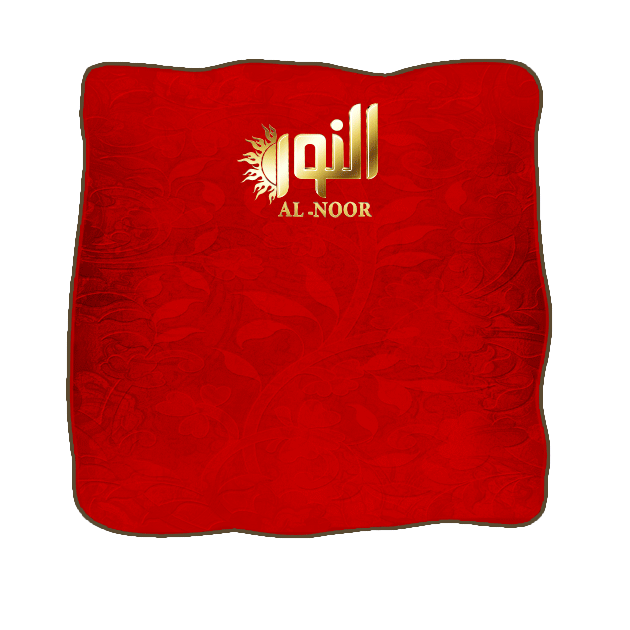
بسم الله الرحمن الرحيم
الحمد لله رب العالمين والصلاة والسلام على أشرف المرسلين سيدنا محمد وعلى صحبه الكرام الميامين
أما بعد :
نزف إليكم إخوة التوحيد والجهاد والمجاهدين في كل مكان
نبأ إستشهاد الأسد الهصور / ” أبو هريرة المقدسي ” رحمه الله ..
أحد أسود جيش الإسلام
نحسبه والله حسيبه ولا نزكي على الله أحداً على ثرى الشام مقبلاً غير مدبراً
تقبل الله منا ومنكم صالح الأعمال
ولا تنسوا إخوانكم من صالح الدعاء
مؤسسة النور الإعلامية
قسم الكتب والنشرات
__________
To inquire about a translation for this statement for a fee email: [email protected]
al-Nūr Media Foundation presents a new statement from Jaysh al-Islām: "Anwar al-'Awlaqī: Pride of the ‘Ulamā' and the Dead Martyrs"

Click the following link for a safe PDF copy: Jaysh al-Islām — “Anwar al-‘Awlaqī- Pride of the ‘Ulamā’ and the Dead Martyrs”
________
